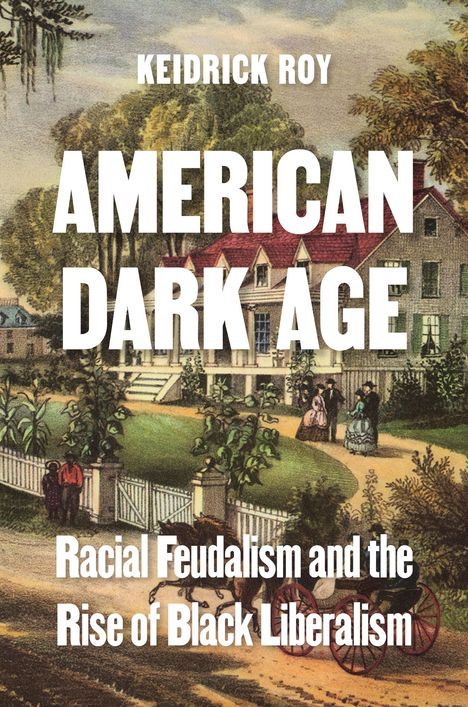Keidrick Roy: American Dark Age, Gebunden
American Dark Age
- Racial Feudalism and the Rise of Black Liberalism
(soweit verfügbar beim Lieferanten)
- Verlag:
- Princeton University Press, 10/2024
- Einband:
- Gebunden
- Sprache:
- Englisch
- ISBN-13:
- 9780691252360
- Artikelnummer:
- 11958040
- Umfang:
- 376 Seiten
- Gewicht:
- 682 g
- Maße:
- 244 x 164 mm
- Stärke:
- 34 mm
- Erscheinungstermin:
- 1.10.2024
- Hinweis
-
Achtung: Artikel ist nicht in deutscher Sprache!
Klappentext
"American Dark Age contends that life in early and antebellum America for Black people resembles what Keidrick Roy calls "racial feudalism," a race-based system of social stratification in the U. S. that operates as an extension of medieval ideas and customs. Accordingly, this project does not read Thomas Jefferson and his Declaration of Independence against the backdrop of the European and American Enlightenment traditions, as virtually all modern scholars have done. Instead, it seeks to understand Jefferson as a product of the same feudal frameworks he claimed to supersede. Jefferson's attachment to feudalism is most evident in his approbation of two new aristocracies during the Age of Enlightenment: (1) the aristocracy of the mind, which he calls a "natural aristocracy," and (2) the aristocracy of the skin, what abolitionist Frederick Douglass later dubs, with emphasis, "skin-aristocracy." After tracing the lineaments of racial feudalism, Roy shows how four African Americans-James McCune Smith, William Wells Brown, Francis Harper, and Harriet Jacobs-present distinctive but interconnected visions for overcoming its effects in the mid-nineteenth century by upending the antecedent feudal architecture of American liberalism, a broad tradition whose unifying strands otherwise emphasize individual liberties, egalitarianism, moral universalism, and meliorism (the belief in the possibility for social and political progress). Ultimately, Roy argues, McCune Smith, Wells Brown, Harper, and Jacobs maintained a spirit of cautious optimism against the retrogressive forces of plantation slavery in the South and what McCune Smith calls "caste-slavery in the North." Their quest to destroy racial feudalism and reformulate American liberalism established the conditions for initiating new ways of being "American.""--

